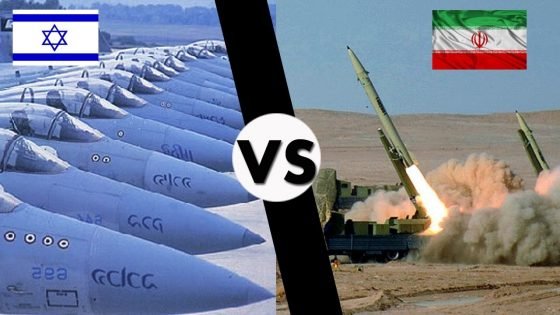Iran and Israel War - Will it Effect Kuwait and Other Gulf Countries?
Iran and Israel War - Will it Effect Kuwait and Other Gulf Countries?

Iran vs Israel: The Current Conflict and Its Implications for the Gulf
The ongoing tensions between Iran and Israel have escalated dramatically in recent weeks, raising concerns about a wider regional conflict. With direct strikes, proxy warfare, and geopolitical maneuvering, the situation remains volatile. This blog explores the current state of the Iran-Israel conflict, its potential consequences, and whether it could impact Kuwait and other Gulf countries—especially given former U.S. President Donald Trump’s statements about using Gulf airbases.
The Current Iran-Israel Conflict
Recent Escalations
-
April 2024 Strikes: Israel reportedly conducted an airstrike on Iran’s consulate in Damascus, killing several Iranian military officials, including senior commanders of the Islamic Revolutionary Guard Corps (IRGC).
-
Iran’s Retaliation: In response, Iran launched a direct missile and drone attack on Israel—the first such open assault from Iranian soil. Most of the projectiles were intercepted by Israel and its allies, including the U.S. and Jordan.
-
Israel’s Counterstrike: Israel retaliated with a limited strike inside Iran, targeting military installations near Isfahan, a key nuclear and military site.
Proxy Wars and Regional Involvement
Both Iran and Israel have long engaged in indirect warfare:
-
Iran-backed groups (like Hezbollah in Lebanon, Hamas in Gaza, and the Houthis in Yemen) have launched attacks against Israel and U.S. interests.
-
Israel has targeted Iranian assets in Syria and Lebanon, aiming to disrupt Tehran’s military supply lines.
Could the Conflict Spread to Kuwait and the Gulf?
U.S. Military Presence in the Gulf
The U.S. maintains significant military bases in Gulf countries, including:
-
Kuwait (Camp Arifjan, Ali Al Salem Air Base)
-
Qatar (Al Udeid Air Base)
-
Bahrain (U.S. Naval Support Activity Bahrain)
-
UAE (Al Dhafra Air Base)
Former President Donald Trump once suggested that the U.S. could use these bases to strike Iran if necessary. While the Biden administration has been more cautious, any large-scale U.S. involvement could drag Gulf nations into the conflict.
Potential Risks for Kuwait and the Gulf
-
Economic Impact: A full-blown war could disrupt oil supplies, leading to price surges and economic instability.
-
Security Threats: Iran or its proxies might target U.S. bases in the region, putting host countries at risk of collateral damage.
-
Political Fallout: Gulf nations, including Kuwait, have tried to maintain neutrality. Being seen as facilitating U.S. strikes on Iran could provoke domestic and regional backlash.
Conclusion: A Delicate Balancing Act
The Iran-Israel conflict remains highly unpredictable. While neither side seems to want an all-out war, miscalculations could lead to further escalation. For Kuwait and other Gulf states, the priority will be avoiding direct involvement while ensuring regional stability.
The U.S. may indeed leverage its Gulf bases if the conflict worsens, but this would come with significant risks for host nations. Diplomatic efforts to de-escalate tensions will be crucial in preventing a wider Middle Eastern war.
What do you think? Will the conflict draw in Gulf countries, or can diplomacy prevail? Share your thoughts in the comments!
What's Your Reaction?
















